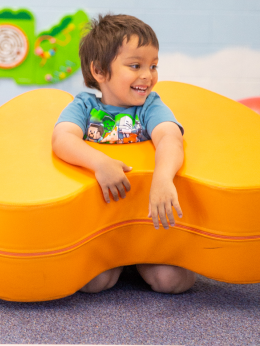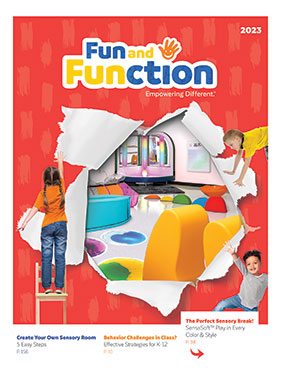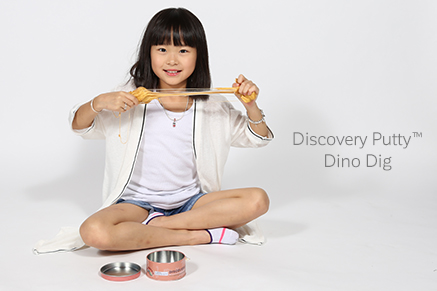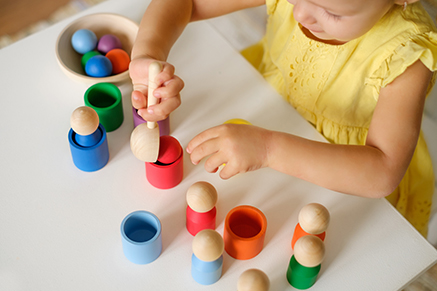People often take the skill of eating with utensils for granted, but it is actually not an inherent skill. Properly grasping a fork, keeping food on a spoon, and cutting with a knife all require a great amount of fine motor skills and coordination. For someone with a fine motor delay or a sensory integration disorder, this can prove extremely challenging.
Working with an occupational therapist on these skills can be very beneficial, but there are many ways you can practice with your child at home too. One of the most important things to do is engage your child in using utensils outside of mealtime. This removes the stress and frustration of trying to get it right while eating. By keeping things fun and anxiety-free, your kids are more likely to succeed.
Here are some of our OTs’ favorite ways to encourage utensil use:
1. Putty Play
Break out the putty! Holding cutlery requires a variety of components and skills such as hand muscle strength, finger dexterity, and in-hand manipulation skills. Squeezing and stretching putty is great for building all of these! Have your kids flatten the putty and create patterns with the tines of a fork. If they are up to knife use, create a round pizza pie out of the putty and let them cut slices.
2. Bucket Transfer
Proper grasp can make a huge difference when it comes to eating with a spoon. Keep it fuss-free by filling a small bucket or container with sensory beads or ping pong balls. Your child can use the spoon to scoop the beads into another bucket until all of them are transferred. This is also a great bath time activity!
3. Paint Night
Get creative and use forks as paintbrushes! Set up a painting station and paint a picture with the fork tines. Your kids won’t even realize that they are practicing critical meal skills as they focus on manipulating the fork to paint their picture.
4. Sensory Bins
There are many opportunities for fine motor skill development with sensory bins. Offer your child a variety of different size spoons to scoop items in the bin. They can use mini kitchen tongs to work on pinching their thumb, pointer finger, and middle finger together, mimicking the proper grasp of a fork and spoon.
If you find that using utensils outside of mealtime for fun activities still causes your child too much stress, then focus on other fine motor activities first. Focus on building the foundation of the skill first, such as using sensory bin play, fitting blocks inside a box, and other sorting games. Once your child is more comfortable you can slowly reintroduce utensils.
Share your utensil experiences with us! Post them in the comments below, email customercare@funandfunction.com or send us a message on social media.
Check out more fine motor tools.
Want to see some of these tips in action? Check out ourvideo!























Comments